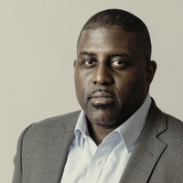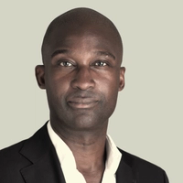THE NEWS Fighting in Sudan threatens to cause a humanitarian crisis in the region. Thousands have already fled the country in the wake of the nearly two-week conflict between Sudan’s army and the paramilitary Rapid Support Forces (RSF). The two sides clashed over how to create a combined force as part of the transition to democratic rule. The World Health Organization estimates more than 400 people have already been killed and around 4,000 injured.  Reuters/El-Tayeb Siddig Reuters/El-Tayeb SiddigSudan borders Chad, South Sudan, Ethiopia, the Central African Republic, Eritrea, Libya and Egypt, most of which have experienced political instability in recent years. The United Nations said 20,000 people had fled to Chad. Sudan’s neighbors are ill-equipped to absorb waves of refugees if the fighting evolves into a prolonged conflict, Peter Pham, former U.S. special envoy for Africa’s Great Lakes Region, told Semafor Africa. Sudan’s neighbors may be confronted with a “wave of humanity… but I don’t think any of them are prepared for this,” he said. KNOW MORE Nigerian authorities on Monday said they were working to evacuate some of the country’s 5,000 citizens stranded in Sudan. Meanwhile, Uganda said it had evacuated more than 200 of its nationals by getting them on to buses traveling via Ethiopia. Zimbabwe has moved its nationals from Khartoum to the Port of Sudan from where transport arrangements were being made to get them back to the southern African country, a government spokesman said. ALEXIS’S VIEW The fight will likely leave thousands of people in need of food and shelter both inside the country and in neighboring countries. “If this does devolve into a nationwide civil war…we’re looking at a regional humanitarian catastrophe [with] refugees flowing into Chad, South Sudan, Egypt, Ethiopia,” Ben Hunter, Africa analyst at risk intelligence company Verisk Maplecroft, told me. “None of these are countries which have the infrastructure and money to look after these people,” he said. U.S. Secretary of State Antony Blinken announced late on Monday a 72-hour ceasefire to enable safe evacuations and the provision of humanitarian assistance. But even if the latest ceasefire holds — unlike previous attempts — prolonged fighting still seems likely. That’s because a range of outside actors — including Egypt, Libya, and Gulf states — are backing sides in the conflict to pursue their own strategic interests in the mineral-rich north-east African country. Their interventions will make it harder to end the fighting. Blinken warned on Monday that Russia’s Kremlin-linked Wagner Group risked aggravating Sudan’s conflict. Kenya’s top diplomat, speaking at the joint press conference, criticized the involvement of Middle Eastern powers. Alfred Mutua, Kenya’s cabinet secretary for foreign and diaspora affairs, called for “an African solution to African problems.” “We can’t effectively do that if we are talking to groups that are being strengthened every day by the parties who believe that all they need to do is to fight to the end,” he said. The self interest of various countries means Mutua’s plea is likely to fall on deaf ears. Meanwhile, Horn of Africa countries that could end up hosting refugees are on the brink of famine following five consecutive failed rainy seasons and supply chain shocks stemming from the war in Ukraine and the COVID-19 pandemic. ROOM FOR DISAGREEMENT Michael Shurkin, senior fellow at the Atlantic Council U.S. think tank, cautioned against assuming there would be a large-scale humanitarian crisis because international aid agencies already have a longstanding presence in the region. “There are resources in place and mechanisms for dealing with mass displacement because there are NGOs everywhere,” said Shurkin. He compared the situation to the Syrian civil war that forced the creation of refugee camps in countries where aid agencies previously were not found, such as Turkey and Jordan. “The infrastructure might already be in place” in areas hit by conflict in recent decades, he said, citing South Sudan, Chad and Sudan’s Darfur region. THE VIEW FROM SOUTH SUDAN Peter Ajak, a former South Sudanese government official, said the ability of the Sudanese to grow crops will be “substantially reduced,” which would affect both countries since South Sudan relies heavily on imports from its northern neighbor. Ajak said the situation in South Sudan “was already horrible with millions of people in need of humanitarian assistance,” after years of intercommunal violence in different parts of the country. “Now, with the extra influx of population from the north I think it’s just going to be absolutely horrific.” NOTABLE - Khalifa Haftar, a warlord in neighboring Libya, organized the training of hundreds of RSF fighters in urban warfare techniques in the months leading up to the fighting, reports the UK’s Observer newspaper. It says the RSF’s leader previously sent mercenaries to fight in Libya alongside a militia led by Haftar, who controls much of eastern Libya.
| 







